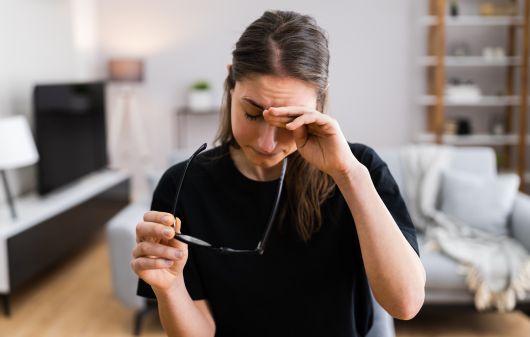
Get Dry Eyes Treatment Online
Dry eye disease is a prevalent issue where the eyes lack proper lubrication due to insufficient or poor-quality tears. This instability in tears can result in eye inflammation and surface damage, causing discomfort, stinging, and burning sensations.
Consult our doctors at Your Doctors Online for the treatment and prescription of dry eyes from the comfort of your home.
How to connect with doctor for dry eyes
Connect with a health care professional online in 3 easy steps.
1
Describe your Issue
Download our app, register and tell us about your medical issue to get started.
- Dry Eyes
- Anemia
- STD
- UTI
- Skin
- Covid
2
Chat with a Doctor
Connect with a board-certified doctor. You can chat, send pictures and videos.
Hi Dr. Nicole, I have watery and itchy eyes. Can you help me?
3
Get Prescription
Our online doctors can help you with your medical issues and give you prescriptions.
Prescription
- Cyclosporine ophthalmic
- Apply in eyes twice a day for 30 days
Send Prescription
Symptoms and Causes
Dry eyes are caused by disruptions in the composition of the tear film, which typically consists of fatty oils, aqueous fluid, and mucus, maintaining eye lubrication and clarity. Various factors can affect these layers, leading to dry eyes. Potential culprits include:
- Hormonal shifts
- Inflamed eyelid glands
- Allergic eye conditions
- Autoimmune disorders
- Decreased tear production
- Heightened tear evaporation
Some common symptoms of dry eyes include:
- The mucus causes eyes to feel “glued shut” after sleep
- Stinging, burning, or scratchy feeling in the eyes
- Dry, gritty, or burning sensation in the eyes
- Watery eyes as a response to irritation
- The sensation of something in the eye
- Symptoms worsen in the evening
- Difficulty wearing contact lenses
- Difficulty with nighttime driving
- Blurred vision or eye fatigue
- Watery or teary eyes
- Redness of the eyes
- Sensitivity to light
- Eyestrain
Inadequate tear production, known as kerato-conjunctivitis, might result from aging, health conditions like Sjogren’s syndrome, autoimmune diseases, medications, or corneal nerve sensitivity. Increased tear evaporation can be triggered by clogged meibomian glands, blepharitis, reduced blinking, eyelid issues, allergies, environmental factors, and vitamin A deficiency.

FAQs About Dry Eyes
How to cure dry eyes permanently without going to the doctor?
Dry eye treatment includes artificial tears or treating the underlying condition as it may be causing the dryness of the eyes. Your provider may prescribe suitable antibiotics to treat the bacterial infection in case of infection. Consult our doctors at Your Doctors Online for the treatment and prescription of dry eyes online without going to the doctor’s office.
What is the best treatment for extremely dry eyes?
The best treatment for severely dry eyes is using lenses to protect the eyes from environmental pollutants and help retain the moisture in the eyes. Other options include using artificial tears, medications that help unclog the oil glands if that is the problem or applying a warm compress to reduce inflammation and irritation. Consult our doctor at Your Doctors Online for the right diagnosis and treatment of dry eyes.
What causes untreated dry eye syndrome?
Dry eye syndrome results from blockage of oil glands in the eyes due to environmental sensitivity or as a side effect of specific health conditions or medications. If untreated for a long time, it can affect vision.
Does dry eye go away without treatment?
Mild irritation can go away, but in most cases, it is a chronic condition that needs immediate medical attention. Dryness intensity varies from person to person, and you may have to try different treatments to find out which one works best for you. Consult our doctors to find the right treatment for your condition as per your diagnosis.
-Phindile Mkhatshwa
-brooke snow
-Okiti Stephanie
-ASIF Khan
-Chelsey
-edith bien aime
-Lesego Thejane
-Stephanie Brown
-kulwinder gill
-Elijah Mark
Get Started Today
Talk to online doctors now and get medical advice, online prescriptions, refills, lab requisitions and medical notes within minutes. On-demand healthcare services at your fingertips.





